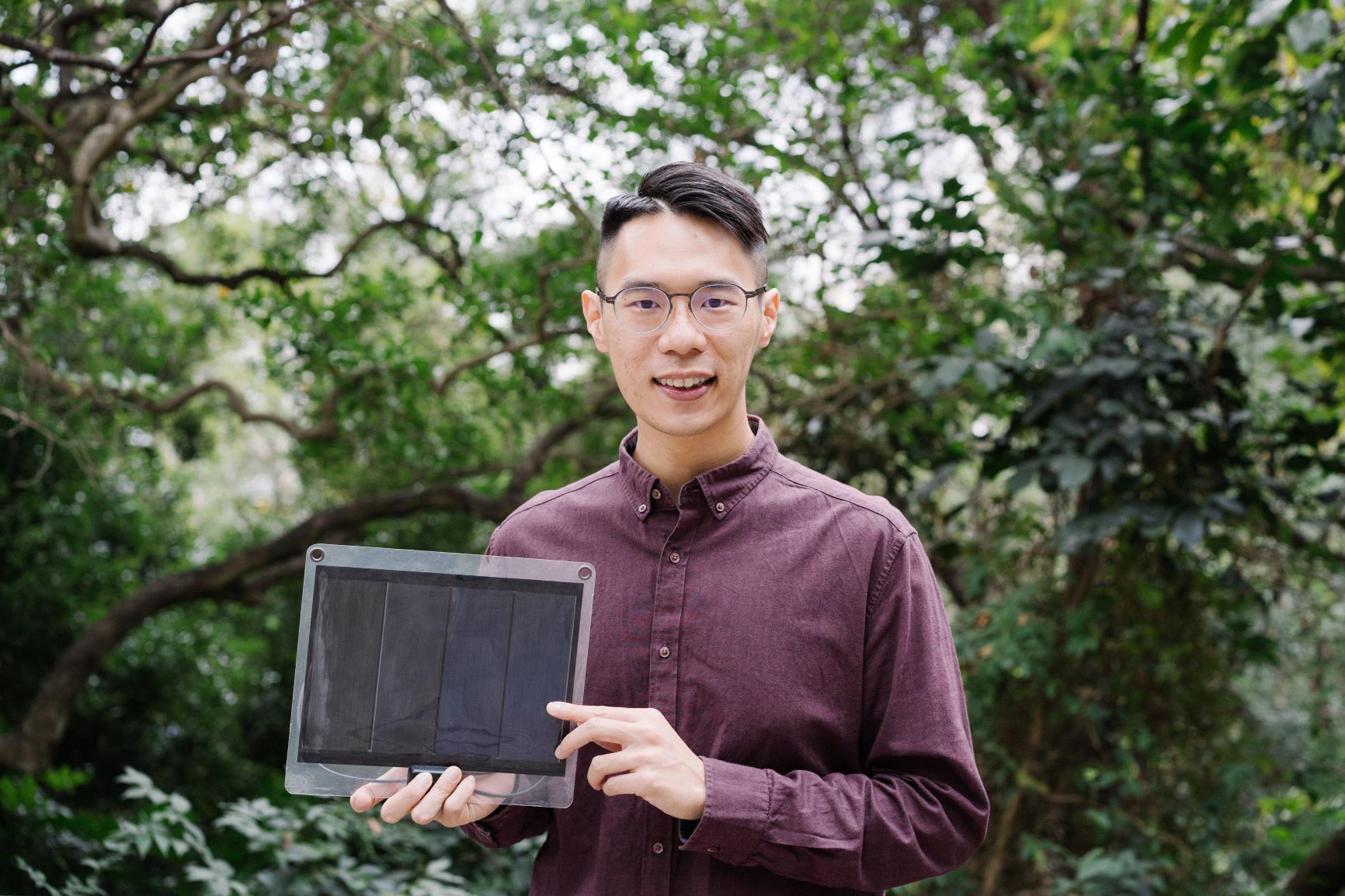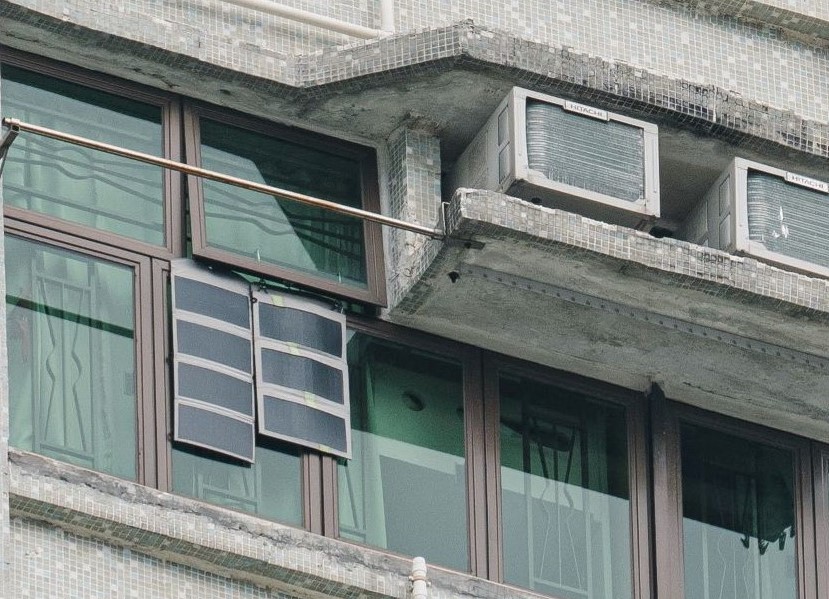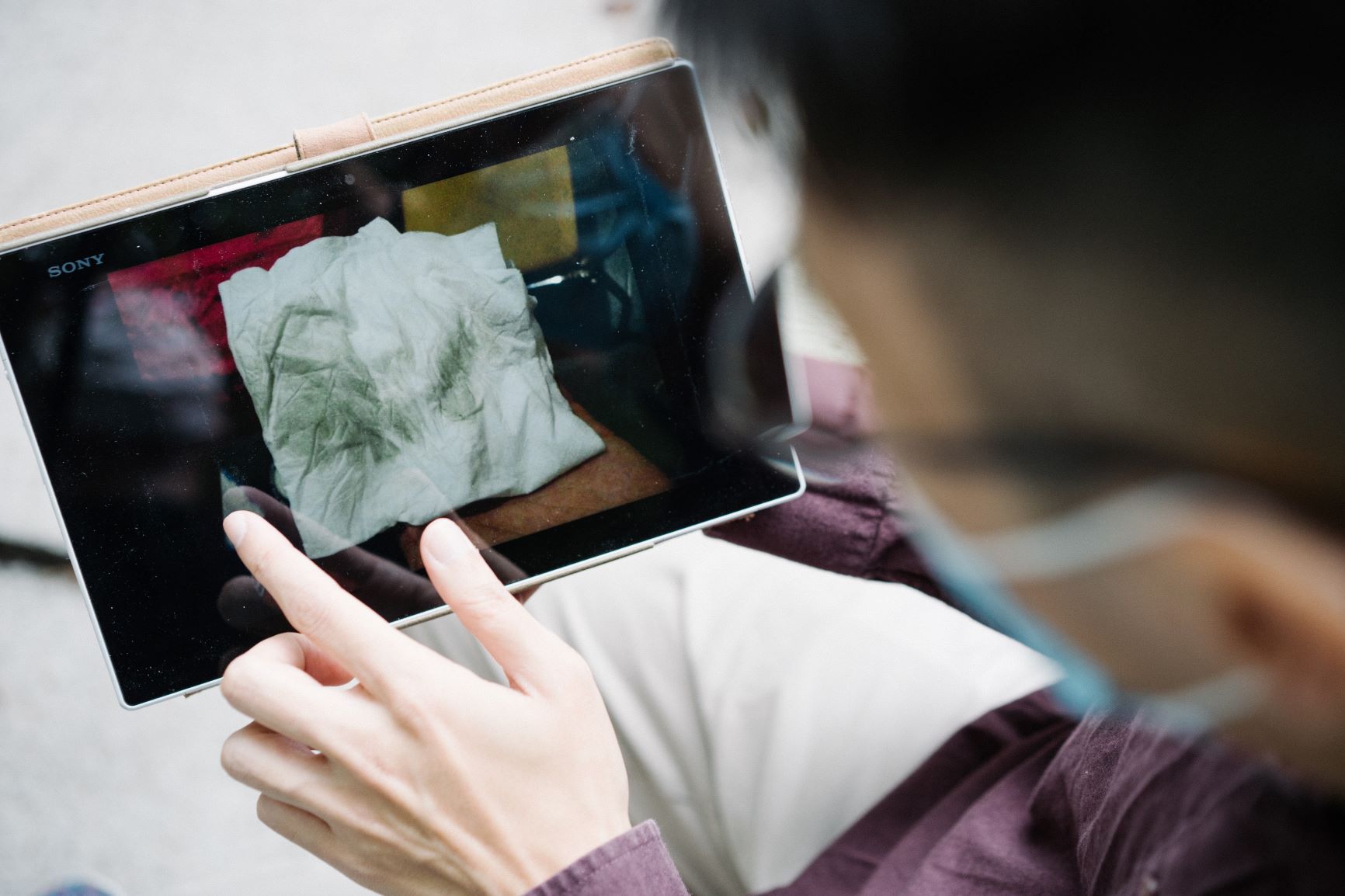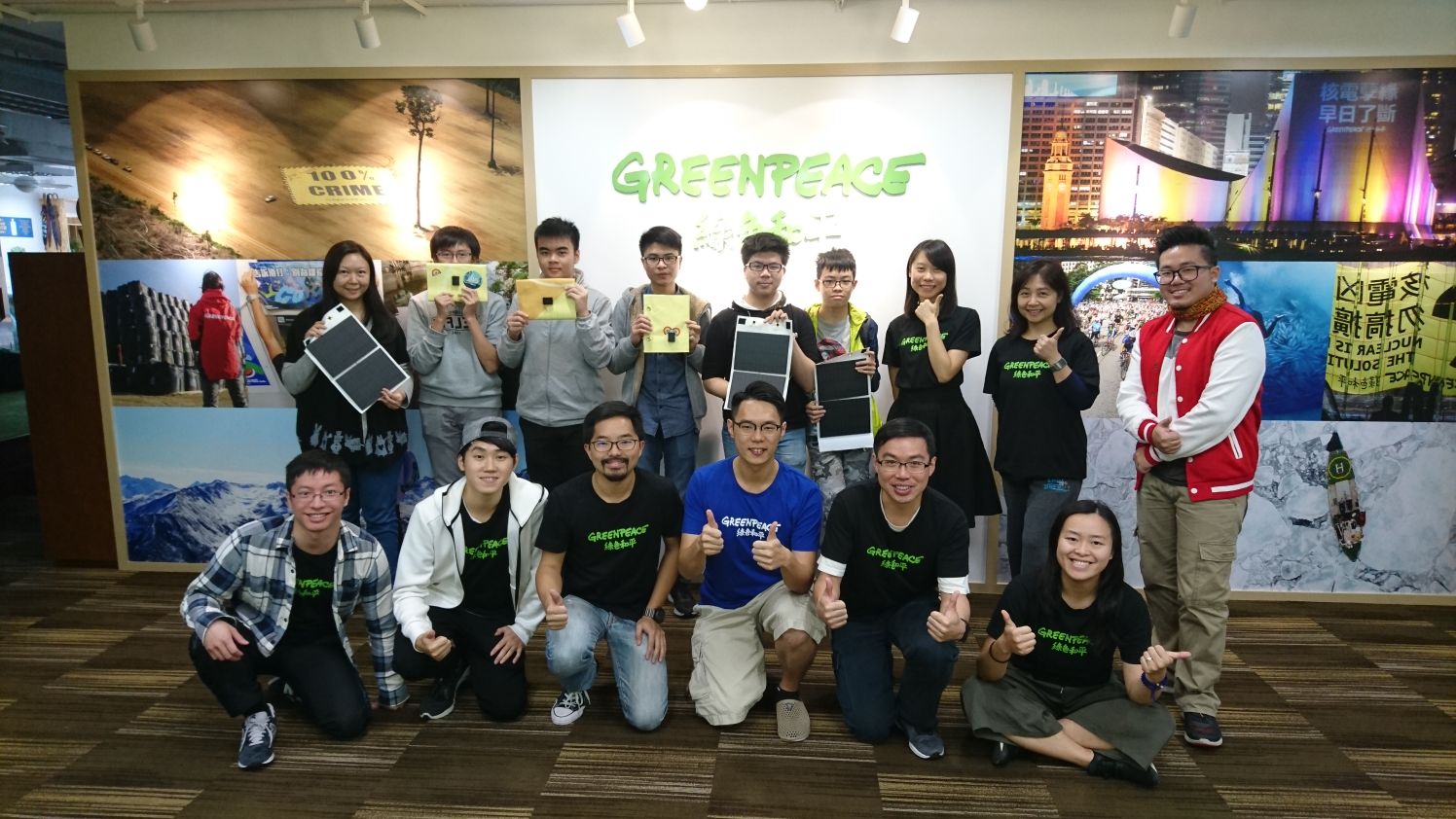Everyone knows that renewable energy is one of the key solutions to tackling the climate crisis, but have you ever thought about actually incorporating it into your life? Billy Lam did. He educated himself about solar energy and now generates power for his own devices at home. This edition of “Let’s Talk about Climate Change” sat down with Billy to pick his brains and learn how we too can be our own little “power station” in the face of climate emergency.

Seeing the light: how Billy got into solar power
“My first encounter with solar power was when I was in my second job. My office had tons of sunlight and that gave me a cool idea. Why not find out if there was any solar powered device that I could use as a charger.”
“I struck lucky and found a battery charger, I felt proud then because it would charge the same as a regular power bank. And that’s how it all started,” he said. His first solar power charger was a small and finely-made portable device. It was a first generation piece of equipment, dating back to 2013-14, and not too powerful, 2.5 watts, just enough to charge an AA battery. But it worked and became another charger for his home. Since then, he’s been a big fan of solar power, and continues to earnestly read up on solar power developments. He’s gradually upgraded, and for a while at home now he’s been using a set of relatively large mobile 24 watt solar panels.
When our office gets a lot of sun, the most you or I might think about is planting some flowers. How was it that Billy saw the light about solar energy?
“How much electricity do you use up to charge your phone? How much money would you really save with a solar charger? Rather it’s what it represents, using solar power doesn’t cost you any money but it also doesn’t cause any pollution,” he said confidently. It’s generally considered that fossil fuels are cost effective. For example, Hong Kong uses coal and natural gas to generate electricity[1]. The cost is a little over 1HKD for one kilowatt-hour, but everyone forgets the environmental cost behind it. Burning fossil fuels is public enemy number one in terms of carbon emissions. There are some things that we can control, he said, asking that if we can reduce carbon emissions with natural resources (solar, wind) why not make good use of them?
Advice on using solar charging devices
- Are they difficult to use?
Not at all. You can buy them off the Internet. But Billy is quick to emphasize that staying environmentally-friendly is still key. “Don’t blindly rush to buy the most powerful one, the most important thing is not to be wasteful. In a nutshell, the product takes two years of use to offset the carbon emissions of its manufacture. If we carry on using it after that, then we’re in environmentally-friendly territory.”
- The benefits & limits of solar energy
Because Billy lives high up, it only takes two days of sunshine to fully charge a power bank, his phone, tablet, shaver, and electric toothbrush. But because of the direction his flat faces, he only gets good sunlight between September and April. For the rest of the year there’s not enough sunlight for the charger to work effectively.
- Taking good care of your solar panels
It’s very easy. Just wipe the dust off the panels; as long as there’s no dirt, the panels should function fine. Generally, there’s no need to worry about the wind and the rain, but Billy is a cautious person, and he always brings the panels indoors when there’s bad weather because he’s concerned about safety.

Shattering some solar power myths
People think that solar is more expensive. But Billy says that the expensive part of solar energy happened 20 to 30 years ago when renewable energy production was first starting up. Not true nowadays, for example, in the United Arab Emirates in the Middle East, new solar power plants are producing cheaper energy than those that are powered by oil.
Furthermore, most people just look at the figures on their bill but ignore all the environmental costs. All other things being equal, coal burning causes a huge amount of carbon emissions, sending our planet hurtling into a climate crisis. Solar panels can be used for 20 to 30 years before they have to be retired and while they’re functioning, they don’t emit any carbon at all.
In fact, Billy closely follows developments in the solar industry, and keeps up to date with the latest industry news. “Often for the same price, you can get 10% more power improvements or for the same power, the price is 10% lower. The technology keeps on improving – the power just gets higher, and the price just gets lower. For those people who have their eye on the price, solar power is attractive, because the trend will only keep on getting flatter.”

Learning from others
About 10 years ago, as a trip to celebrate graduating from university, Billy went to Finland where he experienced for himself a culture of recycling. It was 2011 and the average Finn was already taking glass and plastic bottles back to the supermarket where there were machines that scanned recycled items and then printed out discount coupons. “I was very impressed, not only because it was something normal for everyone but it was the whole of society acting together. I realised that Hong Kong is an advanced city, but there are things we can learn from others.”
Later on, Billy went to Nigeria, representing his volunteer organization “Service Civil International”, and took part in planning a climate initiative. He said what he learned from his Nigerian trip inspired him to think about energy policy from a wider perspective. Nigeria is one of the world’s biggest oil producing countries, oil production supports the entire country’s economy. Yet the industry is seriously corrupt and it could be said that the pollution and ecological destruction is out of control. In addition, in order to protect the oil industry, the government actively encourages the use of oil. Even though there are abundant local solar energy resources, because the government taxes it heavily, few people are interested in it. Nigeria produces oil, yet few consider that the country is rich or advanced, might that have something to do with its distorted energy policies?

The distance between Hong Kong and solar power
Billy joined Greenpeace in 2015, fulfilling his wish to work in environmental protection. He is now our Lead Conversion Coordinator/Telefundraising Campaign Coordinator. A few years ago, he took part in a series of “DIY solar power” workshops that the organization held. Although solar power had not yet taken off, he hoped that the event would get more people into solar. He believes that once we “try it for ourselves, we’ll see that it’s practical and we’ll tell others about it. You might think that a single solar panel installed at home won’t be able to do much, but each new one represents a little bit more awareness and when solar energy begins to be more widely known, there will be more of us out there that are ready for it.”

Billy believes that this city has great potential for renewable energy with all its high rises and roof tops. Previous research by Hong Kong Polytechnic University showed that one tenth of Hong Kong’s energy needs could be provided if a certain percentage of rooftops could be used. In actual fact, the government must approve of this direction, otherwise it would not have introduced the feed-in-tariff system in 2017 [2]. Billy hopes that the government will be more ambitious with developing renewable energy in the city in the future.
“There will come a day when fossil fuels run out, and all fuels have to be imported. By starting to generate our own electricity, we will be helping to ensure a stable supply of energy. And even more importantly, using renewable energy will absolutely make a big contribution to tackling the climate crisis.”
Notes:
[1] HKSAR Government’s Environmental Bureau info: At the end of 2018, coal and natural gas amounted to 77% of the fuel for total installed electricity generating capacity.
[2] Hong Kong’s Feed In Tariff
About “Let’s Talk about Climate Change” series
Climate change is not only here, but it has also evolved to “Climate Emergency”. As global citizens, we should not ignore the crisis we are in. Yet sometimes if not all, we might feel the issue is too big for us or too far away. We are inviting people in our local community, from all walks of life, to share with us how they connect to and make the effort to deal with climate change. Read More
